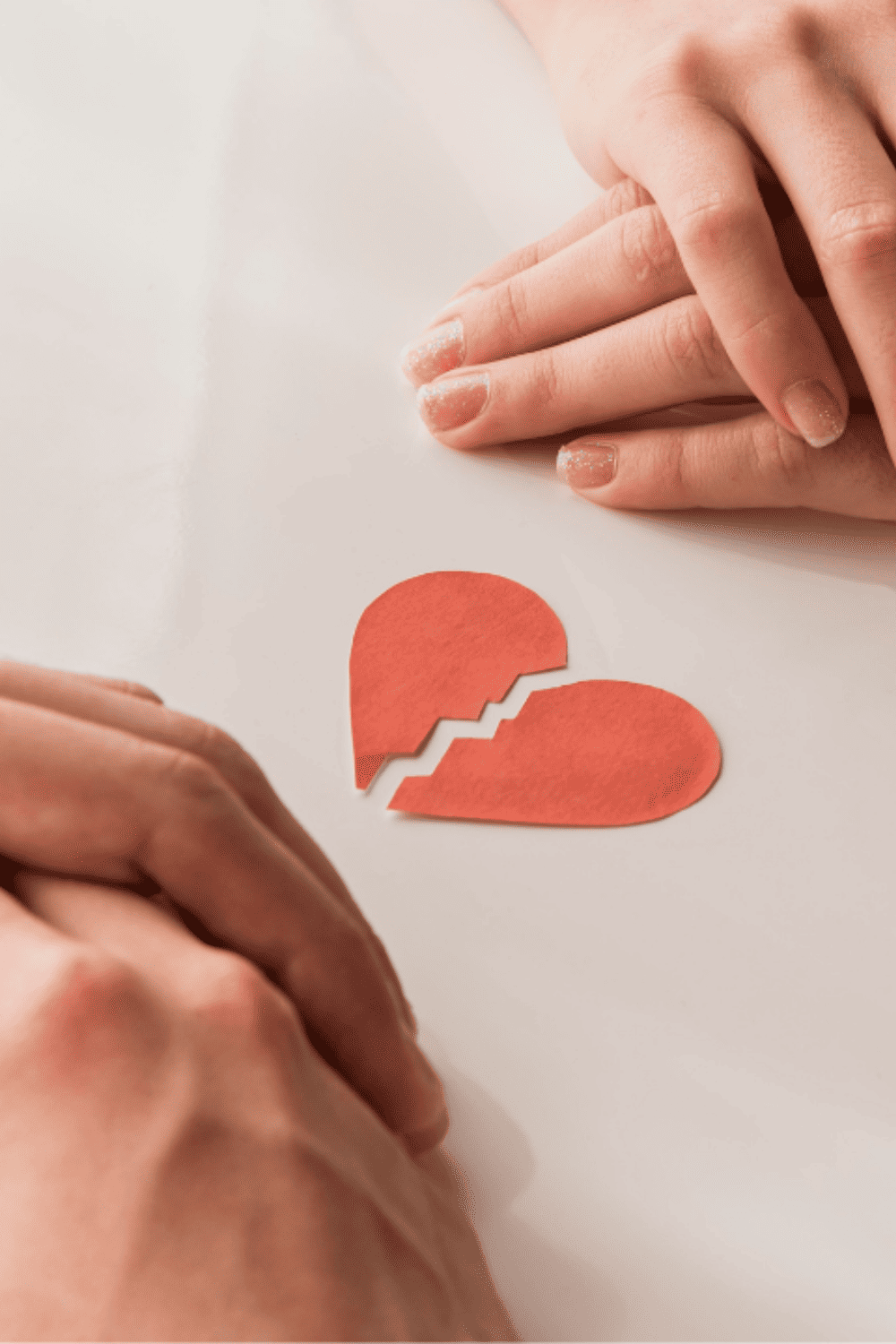What is Fearful Avoidant Rebound?
Rebound isn’t just a basketball term — you’ve probably heard it when it comes to relationships, too.
A rebound is the idea of jumping quickly into a new relationship shortly after leaving another one.
But there’s something even more complex that can happen, specifically when a partner or ex-partner does this. This commonly happens with a fearful avoidant attachment style, called a fearful avoidant rebound, or having a fearful avoidant ex rebound.
Let’s break down what this is, how you can look out for it, and the problems it can cause if you (or the partner) aren’t careful.
What is a Fearful Avoidant Attachment?: Definition and Qualities
There are multiple different types of attachment styles, two of which tend to have avoidant characteristics.
Firstly, let’s compare fearful avoidant vs dismissive-avoidant, as these are two common ones that can often be confused.
People with a fearful avoidant attachment style have mixed feelings about close relationships. They want to be close to others but are scared of getting too attached. They often feel stuck between wanting love and being afraid of it. This can make their relationships really challenging.
Individuals with a dismissive avoidant attachment style tend to prioritize independence and self-sufficiency over emotional intimacy. They often downplay the importance of close relationships and may even avoid emotional connection altogether.
Both of these styles can create distance in these individuals’ relationships, making it difficult for them to form and maintain deep connections. Let’s look a bit deeper into the key feelings and behaviours that show up in fearful avoidant attachment.
Mixed Feelings About Intimacy
Imagine wanting to join your friends for a fun day out but also feeling scared to go. That's a bit like how people with fearful avoidant attachments feel about getting close to others.
They might crave deep connections and feel lonely, but when it comes time to get close, they get uncomfortable and pull away.
High Rejection Sensitivity
People with this attachment style are like sensitive antennas picking up signals of rejection, even when there might not be any.
For example, if a friend doesn't reply to a text right away, they might worry that the friend is mad at them. This fear of being rejected makes relationships really stressful and the feeling of being ignored could easily be one of their fearful avoidant triggers.
Erratic Behaviour
Because this person is torn between getting close to someone and pulling away, their actions can be confusing to others.
One day, they might be super friendly and loving, and the next, they might seem distant and cold. This back-and-forth can be puzzling for their friends and partners.
Difficulty Trusting Others
Trust is a big issue. Even if someone has been nice and supportive, a person with fearful avoidant attachment might still doubt whether they can be trusted.
This lack of trust makes it hard for them to feel secure in any relationship.
Fear of Dependency
There's a big fear of depending too much on someone else. They worry that if they rely on someone else, they might get hurt or let down. This makes them want to handle everything on their own, even if it's tough and they need help.
Self-Protection
All these fears about intimacy, rejection, and dependency lead to one main goal: protecting themselves. They might put up walls or keep people at a distance to avoid getting hurt.
It's like wearing a suit of armour to guard against possible heartache.
Relationship Sabotage
Sometimes, without even realizing it, they might do things that push people away or mess up their relationships. This isn't because they want to be alone but because they're scared of what might happen if they let someone get too close.
Understanding these behaviours and feelings can be helpful, especially if you or someone you know has a fearful avoidant attachment style. It helps to know why relationships feel so complicated and what can be done to make things smoother.
Characteristics of a Rebound Relationship
So, do fearful avoidants come back after a rebound? The thing is, rebound relationships can be tricky. They start soon after a previous relationship has ended, and they usually serve a specific purpose.
Let's explore some of the characteristics that define a rebound relationship, which can help us understand how they work and why they often don't last very long.
Short-Lived
Rebound relationships are often like a fast-burning candle; they shine brightly but not for long. They might begin with a lot of excitement and passion, but this intensity can fade quickly. Since the relationship was likely started to fill a void rather than from a deep connection, it might not have the foundation needed to last.
Emotional Unavailability
One of the biggest signs of a rebound relationship is emotional unavailability. The person jumping into the relationship might still be tangled up with feelings from their past relationship. They might not be ready to open their heart fully to someone new because part of it is still healing from the breakup.
This can make it hard for deep, genuine feelings to grow. It’s like trying to plant seeds in soil that’s already full; there’s just not enough room for new roots to settle.
Distraction and Avoidance
Often, the main goal of someone entering a rebound (whether they’re aware of it or not) is to distract themselves from the pain of their recent breakup. Instead of facing the tough emotions and working through them, they jump into something new to keep busy and avoid feeling sad or lonely. This can work for a little while, but eventually, those unresolved feelings will need attention.
CBT therapy and trauma therapy are both effective tools to help someone in this situation pull themselves out of it and see things clearer so that they can make the best decision for their healing journey.
How to Navigate a Fearful Avoidant Rebound Relationship
Navigating a fearful avoidant rebound relationship can be challenging, but with the right tools and understanding, it's possible to make the journey smoother for everyone involved.
Here are some ways to handle the complexities of these relationships:
Self-Awareness
The first step in dealing with a fearful avoidant rebound is to develop self-awareness. This means understanding your own feelings and why you act the way you do in relationships.
Are you jumping into a new relationship because you're lonely?
Are you afraid of getting too close to someone?
Are you self-sabotaging without your even knowing it?
Emotional Regulation
This is all about healthily managing your emotions. Instead of letting fear or sadness take over, try to find ways to calm yourself. This could be through deep breathing, talking things out with a friend, or even seeking professional help through depression therapy or anxiety therapy.
These strategies can help you keep your emotions in check and prevent them from driving your actions in the relationship.
Seeking Professional Help: Access Therapy is Here For You!
Sometimes, the feelings and issues in a fearful avoidant rebound relationship can be overwhelming, and it's okay to seek help from a professional.
Our Hamilton therapy office can offer support and guidance as you navigate your emotions and relationships. We can help you understand more about your attachment style, how it affects your relationships, and how you can work through any traumas you may have surrounding it.
Our Hamilton therapists can also teach you more effective ways to communicate with your partner. This can help you express your needs and fears without pushing your partner away or closing yourself off. Plus, therapy can be a safe space to not only explore your feelings, but also explore which methods work best for you.
We can help you weigh out things like the pros and cons of DBT therapy among other therapy styles to find which is your right fit before even starting!
Navigating a fearful avoidant rebound relationship isn't easy, but with self-awareness, emotional regulation, and possibly some professional help, you can work towards healthier relationships that are fulfilling and stable. Book a free consultation today and let’s work on it together!





